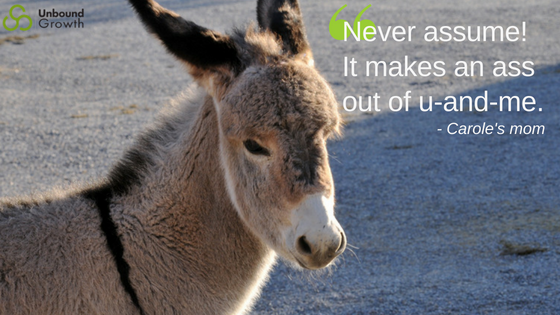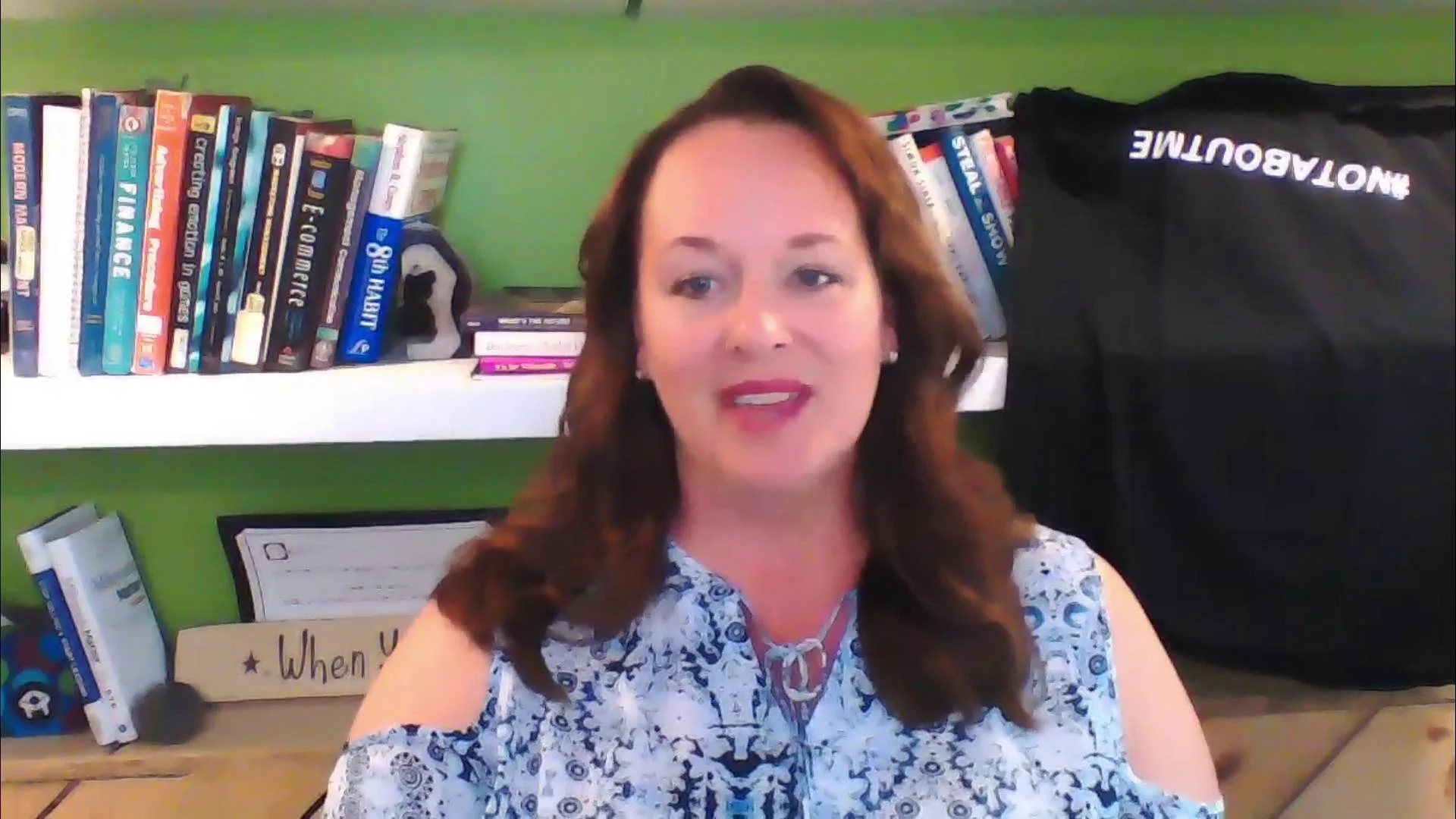
This #livesaleslab wrap-up is actually on ode, or rant- to my mom.
She wasn’t just my mom, but also my first boss in the local restaurant she ran. There are several things she drilled me on over and over again that have stuck with me still today. And no, I’m not exaggerating when I say drilled. My grandfather was a drill sergeant after all.

The Danger of Making Assumptions
When working for my mom, if I had to repeat a customer’s order back and didn’t know for sure what they had said, she would say, “Never assume! It makes and ass-out-of-u-and-me.”
I share this with you because I see and hear salespeople commonly make dangerous assumptions when I debrief their sales conversations and opportunities every day.
For example, when asked what their buyer’s compelling reason to buy is, many will answer will something like:
- “They want to buy our software because they need to increase their leads and revenue.”
- “They need to save time and stop having such in-efficient processes.”
- “They want to grow their agency and need clients with longer retainers.”
These are not compelling reasons to buy, or change the status quo- YET. These could be examples of problems worth discussing and asking more clarification questions on- but by themselves- not compelling. They don’t qualify as compelling until buyers state why they will buy from you over the competition.
The Result of Making Assumptions
What happens when salespeople assume the things above are compelling reasons to buy? More often than not, they are met with no-responses, no-decisions, delayed decisions, and price negotiations. They find themselves in the “just following up," "getting an update," or "checking in” mode.
To uncover someone’s compelling reasons requires strong consultative selling skills and strengths. It is dependent on two key skills; listening and asking a lot of great, and sometimes tough, questions.
It also requires:
- Staying in the moment- which means controlling your emotions and the voices in your head.
- The ability to build trust and strong relationships, and that starts with the understanding that it is not about you.
- Taking nothing for granted- always asking about what you think you know.
- The right amount of patience. Not too much that accepts delays, but not so little that you are rushing buyers according to your timeline (not theirs).
- Understanding how buyer’s will buy- what is their process? Does that align with their goals?
- A healthy dose of skepticism- don't just accept everything at face value- dig deeper with questions that ask why something is the way it is.
- Not jumping into presentations too soon, but asking questions to uncover what is most important to them.
As my mom would say, “Hey! There is no reason to ever have empty hands! There is always something you can do.”







